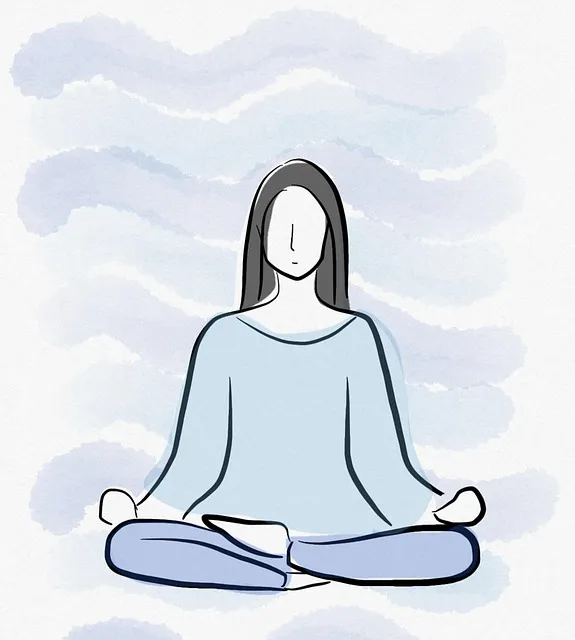The Longmont Kaiser Permanente Mental Health Access Center emphasizes positive thinking exercises (PTEs) as a key element in its holistic approach to mental wellness. These exercises help individuals manage stress, cultivate gratitude, and develop mindfulness, strengthening their resilience against depression. The center offers a personalized range of techniques, combining them to meet individual needs, and tracks success through reduced anxiety/depression symptoms and improved patient well-being. By integrating daily PTEs into routines, consistent practice builds momentum for better mental health.
At the Longmont Kaiser Permanente Mental Health Access Center, we believe in the transformative power of positive thinking exercises. This article explores how our center has successfully implemented these practices, focusing on understanding their significance, identifying tailored techniques for diverse needs, and providing practical strategies for daily integration. We delve into measuring success and adaptive practices, showcasing the impact on our community’s well-being. Discover how Longmont Kaiser Permanente is revolutionizing mental health support through positive thinking exercises.
- Understanding Positive Thinking Exercises at Longmont Kaiser Permanente Mental Health Access Center
- Identifying Suitable Positive Thinking Techniques for Individual Needs
- Integrating Daily Practice: Strategies for Consistent Application
- Measuring Success and Adapting Practices within the Access Center
Understanding Positive Thinking Exercises at Longmont Kaiser Permanente Mental Health Access Center

At Longmont Kaiser Permanente Mental Health Access Center, Positive Thinking Exercises (PTEs) are integral to their comprehensive approach to mental well-being. These exercises are designed to help individuals cultivate a positive mindset, which can significantly impact overall health and quality of life. PTEs focus on techniques such as reframing negative thoughts, practicing gratitude, and engaging in mindful activities, all aimed at fostering resilience and building coping mechanisms against stress and potential depression.
The center’s experienced professionals use these exercises as a form of Crisis Intervention Guidance, assisting clients in navigating challenging situations with greater equanimity. By regularly incorporating PTEs into their therapeutic routines, the center promotes not just short-term relief but also long-lasting resilience building, empowering individuals to better handle life’s curveballs and prevent potential mental health issues like depression.
Identifying Suitable Positive Thinking Techniques for Individual Needs

At the Longmont Kaiser Permanente Mental Health Access Center, we understand that positive thinking is not a one-size-fits-all approach. Identifying suitable techniques requires an understanding of individual needs and preferences. For instance, while some may benefit greatly from mindfulness practices for stress management workshops organization, others might find solace in creative outlets like journaling or art therapy as empathy building strategies.
Our center offers a range of options to cater to diverse personalities. We have found that combining techniques such as cognitive behavioral therapy with positive affirmations can be highly effective in anxiety relief. By tailoring these exercises to the specific challenges faced by each individual, we empower them to develop resilience and cultivate a more optimistic outlook on life.
Integrating Daily Practice: Strategies for Consistent Application

Incorporating daily positive thinking exercises into your routine is a powerful step towards enhancing mental well-being, much like how the Longmont Kaiser Permanente Mental Health Access Center facilitates access to essential mental health services. Consistency is key when it comes to reaping the benefits of these practices. Here are some strategies for making them a regular part of your day:
Start small and set realistic goals. Begin with just 10-15 minutes each morning or before bed, dedicated to reflecting on positive aspects of your life or practicing gratitude. Over time, you can gradually increase the duration as you build momentum. Incorporate these exercises into existing routines; for instance, use commute time to listen to uplifting podcasts or practice mindfulness during a daily walk. Additionally, creating a designated space or using specific tools like journals or apps can make it easier to remember and stick to this new habit.
Measuring Success and Adapting Practices within the Access Center

At the Longmont Kaiser Permanente mental health access center, measuring success goes beyond mere numbers. It involves observing improvements in patients’ overall well-being and their ability to navigate daily life with enhanced resilience. This includes tracking reductions in symptoms of anxiety and depression, as well as increased satisfaction with coping strategies. By collecting patient feedback through surveys and individual consultations, the access center gains valuable insights into the effectiveness of implemented practices.
Adapting to these insights is crucial for fostering mental wellness. The Longmont Kaiser Permanente team employs a flexible approach, regularly adjusting their Compassion Cultivation Practices and other interventions based on ongoing assessments. This dynamic process ensures that services remain relevant, engaging, and ultimately more successful in providing Anxiety Relief while cultivating Mental Wellness among patients.
Positive thinking exercises, as practiced at the Longmont Kaiser Permanente Mental Health Access Center, offer a powerful tool for enhancing well-being. By understanding the various techniques, tailoring them to individual needs, and integrating daily practice, individuals can harness the benefits of optimism and resilience. Measuring success through consistent reflection enables adaptations that better serve unique journeys towards mental health. This personalized approach ensures that the Longmont Kaiser Permanente Mental Health Access Center continues to provide effective support, empowering folks to navigate life’s challenges with renewed perspective.





